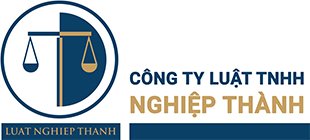To change founding shareholder information in Viet Nam?

The original article To change the founding shareholder information in Viet Nam?
A joint stock company (hereinafter referred to as JSC) is a form of counter-capital, not necessarily based on familiar relationships to operate and contribute capital to the company. Accordingly, individuals and organizations that have the potential to invest in a JSC can become shareholders. Moreover, founding shareholders receive more incentives than common shareholders. So, when a founding shareholder transfers shares, will the transferee become a founding shareholder? Let’s figure it out with Nghiep Thanh Law!
What is a founding shareholder?
Founding shareholders are individuals or organizations that have held common shares of the company since its being newly established, and signed on the list of founding shareholders of the company.[1]
It can be seen that the founding shareholders are the pioneers, calling for investors and capital contributors to jointly create a legal model of a JSC, so in theory, they will be the ones who have the priority rights in the initial decisions of the company. Therefore, the rights and obligations of the founding shareholders are similar to those of ordinary shareholders, but they still have priority and strict adjustment during the initial establishment of the company.[2]
Besides, individuals and organizations with foreign nationality (foreign investors) can still become founding shareholders of the company. According to the applicable law, the establishment of a JSC does not prevent foreign investors from becoming founding shareholders, bringing in a regulation that allows foreign investors to participate in domestic business activities, contributing to economic growth from the foreign currency capital ìnlows.
Incentives and regulations on founding shareholders?
Firstly, the founding shareholders have the right to value the assets contributed as capital (such as gold, property rights, intellectual property rights, etc.) initially of the shareholders at the time of establishment of the JSC based on the consent of the shareholders.[3]
Secondly, besides an organization authorized by the Government to hold voting shares, a founding shareholder is the second person permitted by laws to hold voting preference shares for a maximum period of 3 years from the date the company is granted a certificate of business registration.[4]
Third, a newly established JSC needs to have at least 3 founding shareholders at the time of registration.[5] And these founding shareholders must jointly own at least 20% of the total number of common shares when the company issues shares upon its establishment.[6]
Fourth, the transfer issue. In the first 3 years, except for freely transferring shares to other founding shareholders, in case the founding shareholders want to transfer shares to others, their transfer shall be approved by the general meeting of shareholders.[7] Such restriction on transfers contributes to a stable ownership and management structure of the company in the early years of its establishment.
When the information of the founding shareholders can be changed?
Changes in information of a founding shareholder must be notified to the Business Registration Office. When and only after the capital contribution period passed but the founding shareholder has not yet paid in full or has paid nothing, then the notification procedure will be carried out.
Specifically, after 30 days from the end of the payment time limit for the number of shares registered to purchase at the beginning of the establishment of the company, if the founding shareholders do not fully contribute, only partially or not contribute, the legal representative of the company will carry out the procedures for registration of changes in the founding shareholders to reduce the charter capital accordingly.[8]
On the other hand, shareholders who are foreign investors, including founding shareholders who are foreign investors, when there is a change in the contributed capital in the company through the transfer of shares, it is necessary to carry out the procedure for information change registration to the competent business registration office.[9] With such regulations, the competent authority can inspect and supervise the operation situation, and participation of foreign individuals and organizations into the domestic economy.
In addition, founding shareholders of listed companies do not need to register changes and notify the business registration office like unlisted companies. The type of listed company is usually suitable for long-standing companies with long experience in domestic and international markets, therefore, the commerciality and credibility of these companies are high, and the number of shareholders owning shares for investment and business is great. In essence, this is a company of all shareholders, shareholders’ interests are put first, and the preferential rights of founding shareholders of unlisted JSC will not have a strong effect as for listed companies. Therefore, the change of the founding shareholders of a listed company does not need to register the change and notify the business registration office.
Readers may refer to Legal capital and some relevant issues in Viet Nam
Readers may refer to Conditions for initial public offering of a Joint Stock Company in Viet Nam
The content above is about “To change founding shareholder information in Viet Nam?”
If you find the article useful, let’s spread this knowledge to the Community by clicking “Share” this article.
Nghiep Thanh Law thank you for reading and sharing. We look forward to receiving your feedback and suggestions.
Translator: Le Khanh Linh
Content writer: Le Kim Bao Ngoc
Instructor: Nguyen Linh Chi
Admin: Lawyer Thuan
[1] Article 4.4 Law on Enterprise 2020.
[2] http://lapphap.vn/Pages/tintuc/tinchitiet.aspx?tintucid=210508
[3] Article 36.2 Law on Enterprises 2020.
[4] Article 11.3 Decree 47/2021/ND-CP.
[5] Article 120.1 Law on Enterprise 2020.
[6] Article 120.2 Law on Enterprise 2020.
[7] Article 120.3 Law on Enterprise 2020.
[8] Article 113.3.(d) Law on Enterprise 2020.
[9] Article 58.1 Decree 01/2021/ND-CP.




